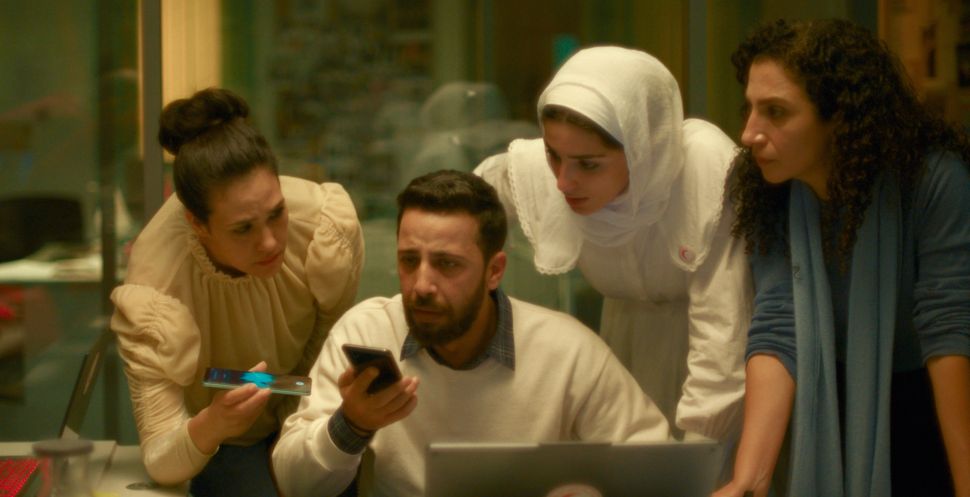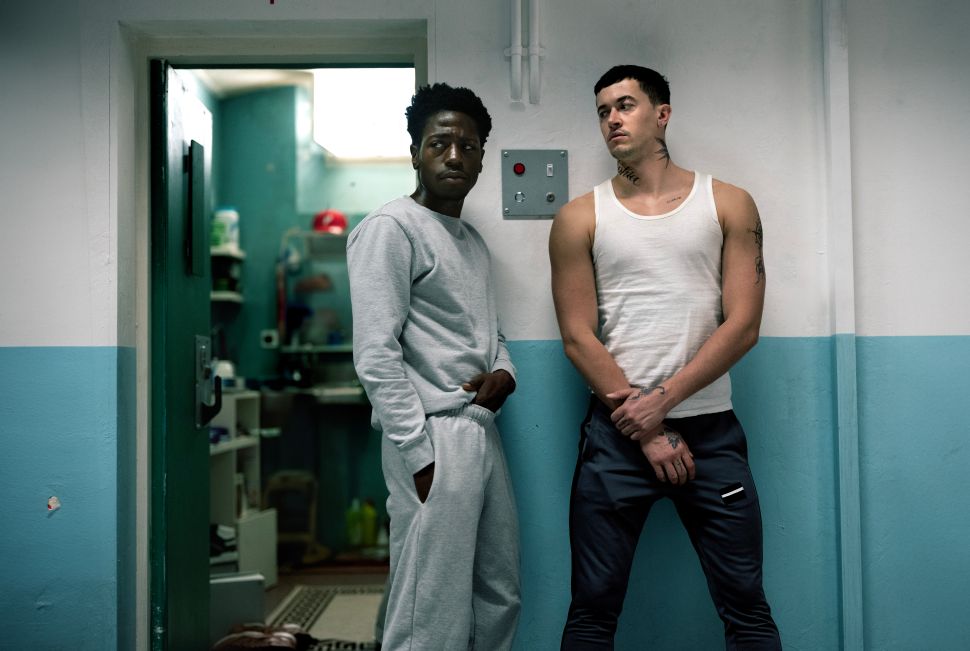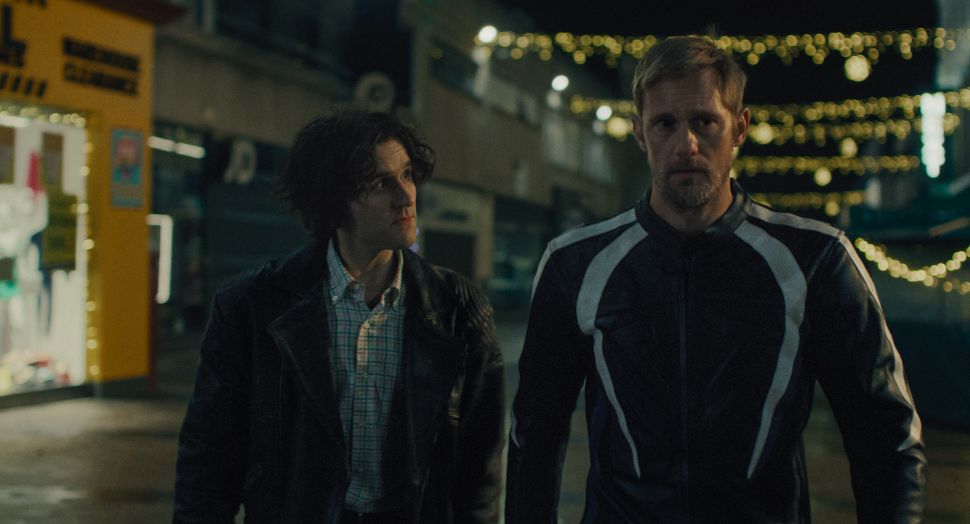 A still from Kaouther Ben Hania’s The Voice of Hind Rajab. Courtesy BFI London Film Festival
A still from Kaouther Ben Hania’s The Voice of Hind Rajab. Courtesy BFI London Film Festival
The most challenging of times bring us the best art. Or at least, that’s what we tell ourselves, balancing the struggles of the modern era against the hope that something may come of them. This year’s crop of cinematic awards contenders suggests that our current trying times are inspiring varied, far-reaching responses to the quandaries that face us, yet there are thematic echoes resonating through even the most seemingly discordant films. Those themes felt especially poignant at the BFI London Film Festival, one of the final major festivals leading into the push of awards season. After opening with Rian Johnson’s Knives Out: Wake Up Dead Man, a cleverly wrought meditation on faith, the 10-day festival showcased a diverse array of storytelling from around the world. At the heart of almost everything were reflections on two ideas: loss and isolation.
Loss manifested most obviously in films like Chloé Zhao’s Hamnet and Clint Bentley’s Train Dreams—tactile and beautiful stories about grief and how we continue to move through the world after the loss of a child (also explored in The Thing With Feathers). Kaouther Ben Hania’s essential film The Voice of Hind Rajab similarly explores the depth of sadness a young person’s death can manifest, but it acts more like a call to arms than a quiet meditation. Based on real events and using real audio, the docudrama depicts the killing of a six-year-old Palestinian girl at the hands of Israeli forces, confronting the viewer with the reality of the war, ceasefire or not. It is a film about what we have lost, but also what we will continue to lose.
 Tom Blyth and David Jonsson in Wasteman. Courtesy BFI London Film Festival
Tom Blyth and David Jonsson in Wasteman. Courtesy BFI London Film Festival
Grief isn’t just for people, as several of this year’s films acknowledge. Father Mother Sister Brother, Sentimental Value, High Wire, & Sons and Anemone grapple with the tenuousness of familial relationships, while The Love That Remains, Is This Thing On? and even Springsteen: Deliver Me From Nowhere face dissipating romances head-on. Some, like Bradley Cooper’s effortlessly charming Is This Thing On?, assert the possibility of reconciliation. Perhaps any relationship is worth another shot. Richard Linklater’s slight but compelling Blue Moon reckons with another type of loss: artistic identity. Ethan Hawke plays songwriter Lorenz Hart, mere months before his death, as he accepts his fate as a failure on the evening his former creative partner Richard Rodgers opens the successful Oklahoma!
Hart’s disconnect from Rodgers, the tragic core of Blue Moon, suggests that we may fear isolation even more than loss. Grief is often ephemeral, easing over time, but a lack of human connection can last a lifetime. Hikari’s thoughtful film Rental Family stars Brendan Fraser as an American living in Tokyo, far removed from both his culture and his prior life. He’s alone, which draws him to a job feigning connection for other isolated people. Pillion, a standout of the festival and filmmaker Harry Lighton’s feature debut, suggests that we can only discover real connection once we are honest about who we are and what we want. The film is aided by Harry Melling’s vulnerable performance as a young British gay man who finds solace in a submissive relationship with the leader of a biker gang. We are less far apart than we think, sexual preferences aside.
 Harry Melling and Alexander Skarsgård in Pillion. Courtesy BFI London Film Festival
Harry Melling and Alexander Skarsgård in Pillion. Courtesy BFI London Film Festival
Isolation isn’t always solved by the presence of someone else, as examined by Lynne Ramsay’s Die My Love, a confronting look at female mental health. As a postpartum woman with bipolar disorder, Jennifer Lawrence is feral and completely at sea, lost even when she’s with her husband and child. She tries to ground herself with sex, alcohol, and even violence, but she’s so disconnected from herself that there is nothing to hold on to. In The Chronology of Water, Kristen Stewart’s directorial debut, Imogen Poots embodies real-life writer Lidia Yuknavitch, who also turns to substances and sex as a way of rooting herself in reality. It doesn’t work, but Lidia eventually finds writing as a means of connection and a way to absolve herself of a traumatic past. In Wasteman, another standout of the festival and the feature debut of British filmmaker Cal McManus, inmates share a forced connection but can only move on from their crimes by standing up for themselves. Shared circumstances may not unite us after all, as McManus explores through his lead character, played by rising actor David Jonsson.
Although Palestinian history and identity were prominently and importantly on display during the festival in The Voice of Hind Rajab, Palestine 36 and Hasan in Gaza, this year saw a distinct lack of overtly political films. It’s not a year for war epics or presidential biopics, but instead for more intimate stories that underscore the idea that the personal is political. Despite being united by the internet and social media, we often feel alone in our struggles and experiences. Films remind us of what we share and why we share it, especially in tumultuous times like these. Loss and isolation impact everyone, everywhere, as so many filmmakers and screenwriters are presently exploring. In the spotlight this awards season are human stories about human emotions and human fears, told in charming and sometimes hauntingly unique ways. As the BFI London Film Festival lineup underscored, this is a particularly good year for cinema. Ideally, it will leave behind a record of a specific thematic moment in modern history—one where we know what there is to lose and we’re willing to face it anyway.
More in Film
